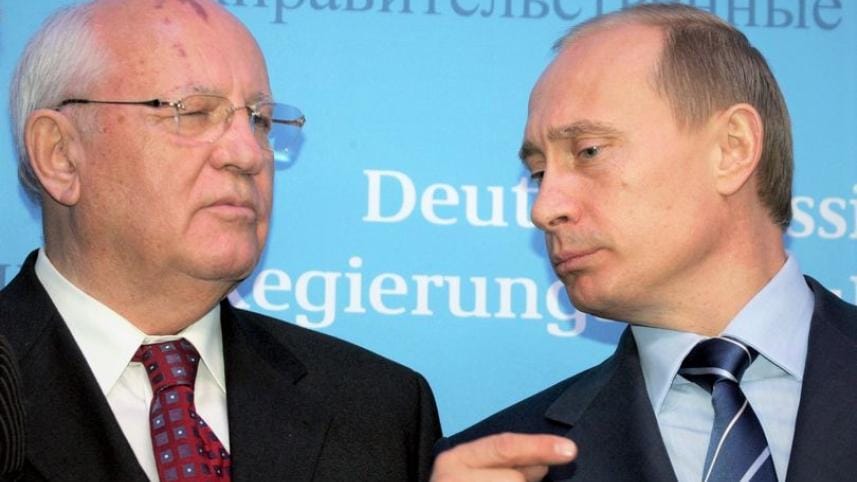Gorbachev denied state funeral, Putin decides not to attend

Russian President Vladimir Putin is to miss the funeral of the last Soviet leader, Mikhail Gorbachev, denying the man who failed to prevent the collapse of the Soviet empire the full state honours granted to Boris Yeltsin.
Gorbachev, idolised in the West for allowing eastern Europe to escape Soviet communist control but unloved at home for the chaos that his "perestroika" reforms unleashed, will be buried on Saturday after a public ceremony in Moscow's Hall of Columns.
The grand hall, within sight of the Kremlin, hosted the funerals of Soviet leaders Vladimir Lenin, Josef Stalin and Leonid Brezhnev. Gorbachev will be given a military guard of honour - but his funeral will not be a state one.
State television on Thursday showed Putin solemnly placing red roses beside Gorbachev's coffin - left open as is traditional in Russia - in Moscow's Central Clinical Hospital, where he died on Tuesday aged 91.
Putin made a sign of the cross in Russian Orthodox fashion before briefly touching the edge of the coffin.
"Unfortunately, the president's work schedule will not allow him to do this on Sept. 3, so he decided to do it today," Kremlin spokesman Dmitry Peskov told reporters.
He said Gorbachev's ceremony would have "elements" of a state funeral, and that the state was helping to organise it.
Nevertheless, it will be a marked contrast to the funeral of Yeltsin, who was instrumental in sidelining Gorbachev as the Soviet Union fell apart and hand-picked Putin, a career KGB intelligence officer, as the man most suited to succeed him.
When Yeltsin died in 2007, Putin declared a national day of mourning and, alongside world leaders, attended a grand state funeral in Moscow's Cathedral of Christ the Saviour.
Russia's intervention in Ukraine appears aimed at reversing at least in part the collapse of the Soviet Union that Gorbachev failed to prevent in 1991.
Gorbachev's decision to let the countries of the post-war Soviet communist bloc go their own way, and East and West Germany to reunify, helped to trigger nationalist movements within the 15 Soviet republics that he was powerless to quell.
Five years after taking power in 2000, Putin called the breakup of the Soviet Union "the greatest geopolitical catastrophe of the 20th century".
It took Putin more than 15 hours after Gorbachev's death to publish a restrained message of condolence that said Gorbachev had had a "huge impact on the course of world history" and "deeply understood that reforms were necessary" to tackle the problems of the Soviet Union in the 1980s.



 For all latest news, follow The Daily Star's Google News channel.
For all latest news, follow The Daily Star's Google News channel.
Comments